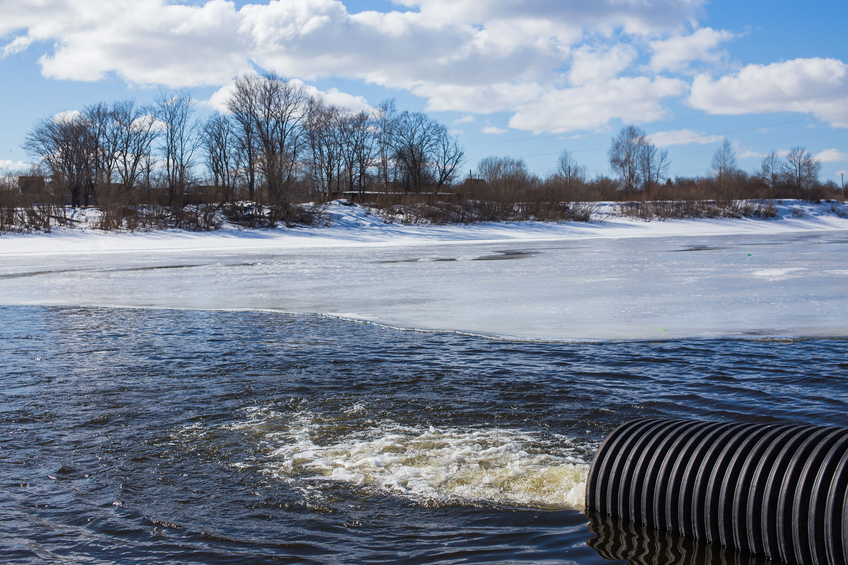Stormwater Engineering 15 PDH Discount Package 2
Introduction to Green Streets (C02-025)
Storm Water Pollution Prevention Plans for NPDES Construction Sites (C05-009)

This online engineering PDH course introduces the reader to the principles and practices of conservation design.
Development inevitably causes some degree of disturbance and compaction of the soil, the loss of vegetation density, impacts to natural habitats and the creation of impervious surfaces. All too often ordinances requirements result in a site layout that does not take into consideration the most valuable aspects of a site. Water quality, habitat, and critical ecological features can be lost if sites are fit to a development, rather than fitting a development to a site.
Conservation design is a site development strategy that takes into consideration the most valuable features of the natural landscape, while still allowing equivalent development density. Conservation design focuses on the grouping of building sites thereby allowing for the preservation of green corridors, valuable natural resources, and the avoidance of ecologically sensitive areas. Conservation design typically results in projects that are better for the environment, as well as providing additional economic and quality of life benefits. For these reasons conservation design is gaining popularity.
This 8 PDH online course is applicable to practicing engineers, contractors, developers, regulators, and all other personnel involved with site development.
This PE continuing education course is intended to provide you with the following specific knowledge and skills:
- Understanding what conservation design is
- Understanding the benefits of conservation design
- Learning ways conservation design can be integrated into local plans and ordinances
- Learning the principals and practices for conservation design
In this professional engineering CEU course, you need to review the "Conservation Design Resource Manual" published by the Northeastern Illinois Planning Commission and Chicago Wilderness.
Upon successful completion of the quiz, print your Certificate of Completion instantly. (Note: if you are paying by check or money order, you will be able to print it after we receive your payment.) For your convenience, we will also email it to you. Please note that you can log in to your account at any time to access and print your Certificate of Completion.

This online engineering PDH course introduces the reader to green infrastructure practices for streets.
Urbanization inevitably causes some degree of disturbance and compaction of the soil, the loss of vegetation density, impacts to natural habitats and the creation of impervious surfaces. In urban areas, pavement (roads, sidewalks, and parking) frequently accounts for over 66-percent of the total imperviousness. Impervious pavement has a tremendous effect on the water quality and quantity of water delivered to receiving waters. Methods are frequently sought to mitigate the effects of streets in new and existing development. Green street practices provide the opportunity to alleviate the hydrologic impacts of streets, as well as the opportunity to improve water quality, habitat, infiltration, and aesthetics on a site.
Green streets are a suite of tools that have the goal of improving water quality, while mimicking predevelopment hydrology. Green street practices are one of the most versatile and important green infrastructure practices. Some green street practices include: permeable pavement, vegetated swales, bioretention, alternative street design, sidewalk trees, and tree boxes. These green street practices, if designed installed and maintained properly, can transform urban impacts into a creative method to provide transportation needs while balancing environmental concerns.
This 2 PDH online course is intended for practicing engineers, contractors, developers, governmental agencies, regulators, and all other personnel involved with the design, installation, and maintenance of streets.
This PE continuing education course is intended to provide you with the following specific knowledge and skills:
- Understanding the impacts of typical urban roads/sidewalks/and parking lots
- Learning about the goals of green street practices
- Learning about the types of green street practices
- Understanding the benefits and hurdles of various green street practices
- Learning about successful green street case studies
In this professional engineering CEU course, you need to review the EPA publication titled, "Green Streets" (EPA-833-F-08-009).
Upon successful completion of the quiz, print your Certificate of Completion instantly. (Note: if you are paying by check or money order, you will be able to print it after we receive your payment.) For your convenience, we will also email it to you. Please note that you can log in to your account at any time to access and print your Certificate of Completion.

This online engineering PDH course introduces the reader to the development of construction site Stormwater Pollution Prevention Plans (SWPPP). A SWPPP is required for coverage under the National Pollutant Discharge Elimination System (NPDES) Construction Site General Permit.
Development inevitably causes some degree of disturbance and compaction of the soil, the loss of vegetation density, impacts to natural habitats and the creation of impervious surfaces. All too often ordinances requirements result in a site layout that does not take into consideration the most valuable aspects of a site. Water quality, habitat, and critical ecological features can be lost if sites are fit to a development, rather than fitting a development to a site.
The most critical requirement of the NPDES permit is the preparation and implementation of a SWPPP. The NPDES program has specific requirements for items that must be addressed in a SWPPP. Understanding the requirements for the creation and implementation of a SWPPP is essential to staying in compliance with the law. The SWPPP serves many functions: NPDES permit conditions require it, it provides documentation of compliance, and ultimately if properly designed and implemented it provides the direction to reduce water quality impacts.
This 5 PDH online course is applicable to practicing engineers, contractors, developers, regulators, and all other personnel involved with construction sites.
This PE continuing education course is intended to provide you with the following specific knowledge and skills:
- When and why you need a SWPPP
- What elements are required in a SWPPP
- Fundamentals of the erosion process
- Developing a SWPPP using site analysis and planning
- Proper selection of Best Management Practices
- Certification and Notification requirements
- SWPPP Implementation
In this professional engineering CEU course, you need to review the EPA publication "Developing Your Stromwater Pollution Prevention Plan" (833-R-060-04).
Upon successful completion of the quiz, print your Certificate of Completion instantly. (Note: if you are paying by check or money order, you will be able to print it after we receive your payment.) For your convenience, we will also email it to you. Please note that you can log in to your account at any time to access and print your Certificate of Completion.